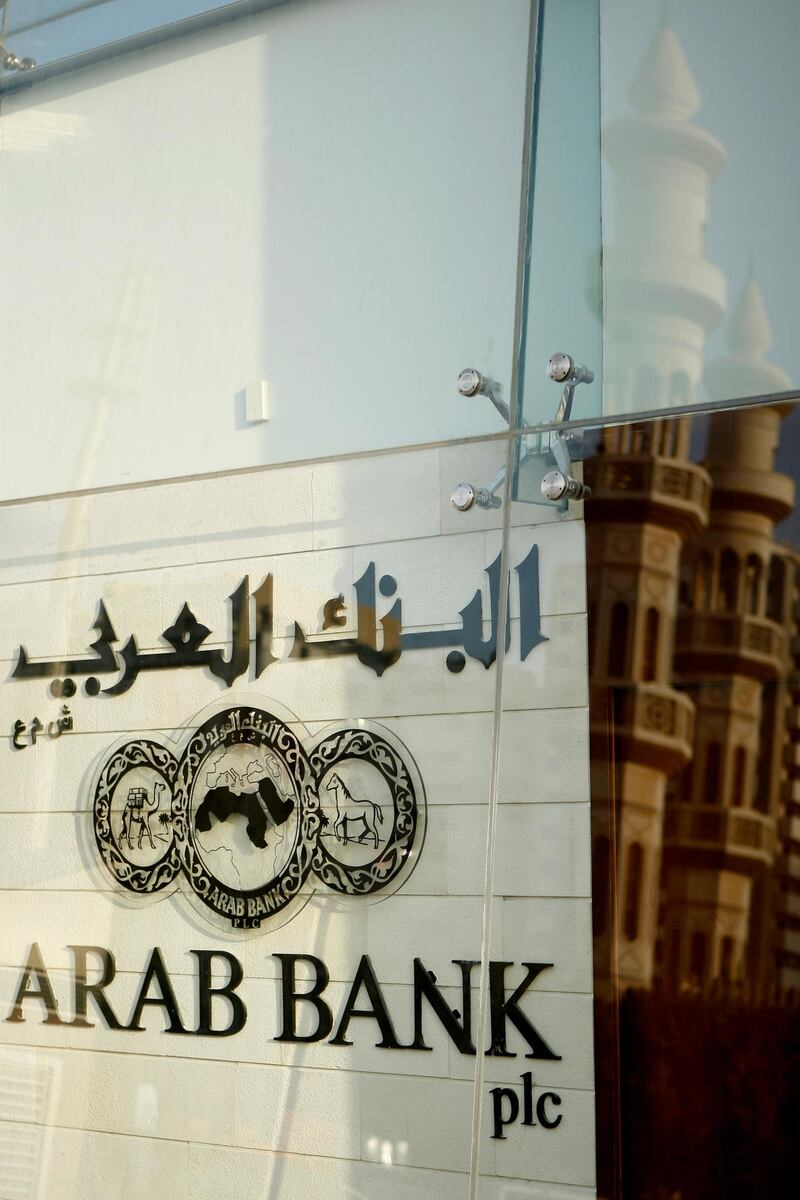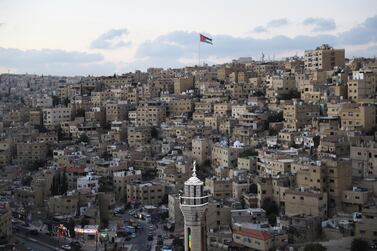The operating environment for banks in Jordan is stabilising and despite challenges, lenders have maintained asset quality through the economic cycles on the back of prudent risk appetite, Fitch Rating says.
Jordanian banks have high exposure to domestic sovereign debt and sovereign credit exposures, which increases the correlation between banks and their operating environment, which in turn constrains their ratings, Fitch said in its latest report on the country's banking system.
Arab Bank, the Jordan's largest lender by assets, is an exception and its ratings reflect the bank's geographical diversification, with operations in the GCC, North Africa and Europe. Jordan represents less than a third of Arab Bank's assets. The bank has a long-term issuer default rating (IDR) of "BB".
The long-term IDRs of Fitch-rated Jordanian banks are driven by their stand-alone credit profile, as defined by their viability ratings, which are correlated with and constrained by the Jordan's stabilising, yet still challenging operating environment, Fitch said.
Rising unemployment, a difficult, albeit slowly improving regional environment and growing social tension from ongoing fiscal consolidation are some of the immediate challenges faced by Jordan and its banks. The kingdom is financially burdened by hosting 1.3 million Syrian refugees. Jordan, which has no natural resources, imports more than 90 per cent of its energy needs and has historically financed its deficits through grants and soft loans. The country is spending $2.5bn a year on refugees, Jordan's Prime Minister Omar Razzaz said in and interview with The National in April.
Earlier this week, Jordan received $166 million (Dh609.2m) tranche from the International Monetary Fund, after the lender completed its second economic review of the country. The latest disbursement brings the total amount received under the Extended Fund Facility to $309m, to support the country’s economic and financial reform programme. The proposal aims to advance fiscal consolidation to lower public debt and introduce broad structural measures to enhance the conditions for more inclusive growth.
Despite the economic challenges, Jordanian lenders have maintained asset quality.
“The sector's impaired loans ratio is declining – 4.6 per cent as of first half of 2018 – as banks continue to clean up their balance sheets from legacy impaired loans,” Fitch said.
Jordanian Banks continue to demonstrate healthy profitability despite some margin pressure. The net interest margins for some of the lenders came under pressure in 2018 as a result of rising funding costs. However, pre-impairment operating profitability remains healthy, providing banks with good buffers against deterioration in asset quality without hurting their capital base, the rating agency said.
The banking system’s average capital adequacy ratio was at 17.2 per cent at the end of first half of last year, comfortably above the minimum regulatory requirement.
“We consider capitalisation to be only adequate given banks' elevated loan book concentration and zero per cent risk weighting on local currency sovereign debt and sovereign guaranteed exposures,” Fitch said.
“Banks continue to demonstrate strong funding profiles underpinned by large and granular retail deposits. The sector's loans-to-deposits ratio remains healthy at below 80 per cent [and] banks maintain a comfortable stock of liquid assets, including interbank placements, cash balances and sovereign securities.”








